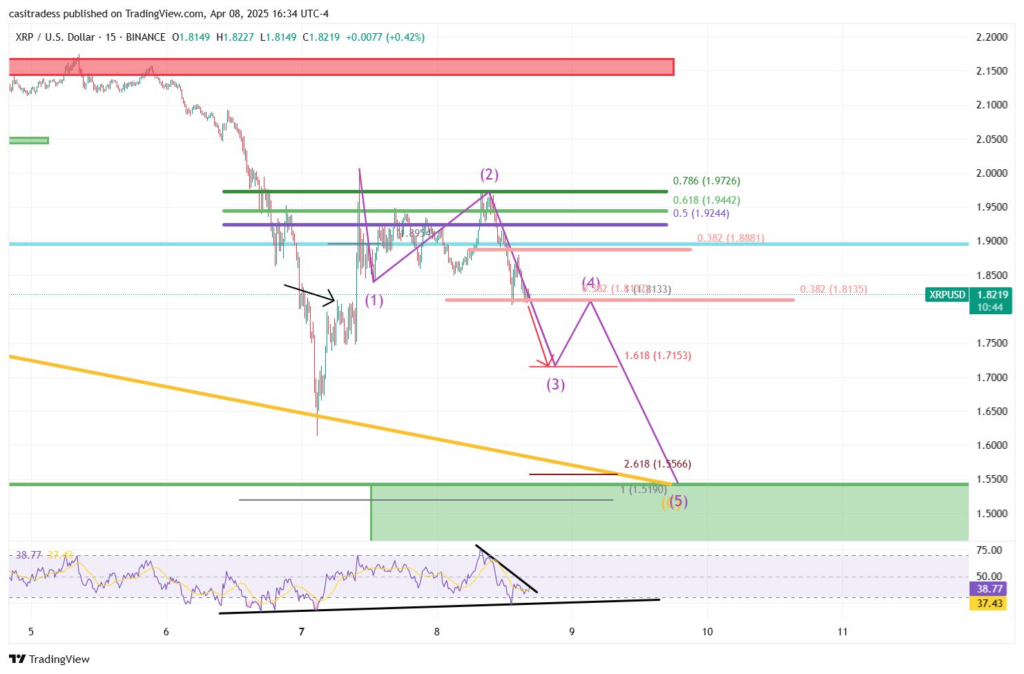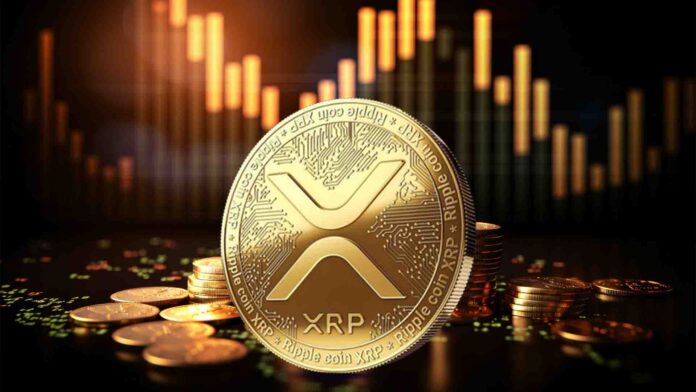Key Insights:
- A $414 Million XRP transaction between two unmarked wallets has stirred interest in the crypto market.
- The transfer occurred on Wednesday at 11:23 UTC and involved 230.77 million XRP.
- On-chain data suggested that both addresses involved in the transfer are linked to the Kraken exchange.
A massive on-chain XRP transaction valued at $414 Million has drawn significant attention. This unusual activity has ignited fresh discussions within the cryptocurrency market.
Midweek, the shift between two unmarked wallets drew quick attention from blockchain trackers. Despite ongoing price pressure, XRP showed momentum as traders monitored key technical levels.
Large XRP Movement Raises Eyebrows Amid Exchange Links
At 11:23 UTC on Wednesday, a bulk XRP transfer of 230.77 million XRP shifted from two non-disclosed wallets. Whale Alert noticed the transaction because it sent 230.77 million XRP from “rp7TCc” to “rHapXG.” During the transaction execution, the money exchanged was above $414 million.
Investigations revealed that the San Francisco-based cryptocurrency exchange Kraken managed both addresses. It was confirmed that they began utilizing the sender’s wallet in December 2024.
Bithomp demonstrated that the wallet frequently engages with the Kraken platform through its data analysis. This suggested a significant presence of exchange. The wallets have no official markings, yet the recorded blockchain events connect to internal company operations.
The wallet receiving the XRP only engaged with one single transfer for a minimal amount before the latest transaction occurred. The address handling the prior XRP transfer received the funds because it activated them, making a strong case for internal management.
Commercial analysts believe the recent XRP transaction is part of Kraken’s strategy to manage its exchange liquidity. This aligns with Kraken’s focus on maintaining efficient operations and market stability.
XRP Price Attempts Recovery After Recent Weakness
XRP experienced price fluctuations, stabilizing after reaching its intraday minimum value of $1.7216. The token gained more than 6.4% starting from that support level and trades in the $1.8338 area.
Although it has moderately recovered, the price remains below the essential resistance threshold of $2. Cryptocurrency suffers from poor performance because of concerns emerging from the unresolved global economic disputes between the US and China.
Although prices have recovered with increased trading volume, retail and institutional trader interest grows steadily based on short-term market data. The market is conservative, although technical data suggests a breaking point could appear soon.
A price rally of XRP will likely occur if it surpasses upcoming resistance levels but sustains current holding prices. Market indicators displayed a reduced willingness to sell, and a potential upward price momentum will occur after breaking above $2.
The price demonstrated strong potential for further acceleration as the quarter progresses. This trend reflected growing optimism in the cryptocurrency market.
Technical Patterns Indicate Key Support and Possible Reversal
According to a technical analyst, XRP price was found resistant at the $1.81 support mark, which stands against price decline. The price support was an essential barrier against falling to the following crucial support area at $1.71.
Expert analysts suggested a temporary price drop when it passes beneath this critical area. Elliott Wave theory suggested a potential “Wave 3” bearish movement for the token unless the price stabilizes above existing market levels.
Analysts predicted that the previous price movement from $1.72 adds strength to the $1.71 support zone. This will act as temporary resistance. XRP may challenge the significant support area at $1.55 after failing to defend its current position.

Expiring correction patterns often signal their final stages at this retracement level. This stage typically marks the onset of an upward price movement, suggesting a potential market recovery.
Market analysts suggest XRP could initiate an upward trajectory toward $4.5 and beyond. This potential rise hinged on the $1.55 resistance area, maintaining its strength. The market carefully expected signals for an inversion of current trends to occur.
Market Outlook and Price Predictions Remain Mixed
The short-term projection for XRP showed unclear signs because various indicators from on-chain metrics and chart analysis present contradicting information. The movements of large wallets on Kraken generate close trader observation since they often signal upcoming market trends.
A price rise delay is probable without substantial external money flows. Expert analysts anticipate that XRP could hit $4.5 in its ongoing market cycle. This projection depends on a recovery in market momentum and the successful breach of key resistance levels.
The longer-term potential for price growth is $17, while $45 is a target when general market conditions strengthen. Forecast models depend on general market developments and the token’s capacity to win back its investors.
The price volatility problem continues due to irregular trading volume movements near support zones. Institutional investment could return if XRP’s price maintains higher levels above $2.
Market observers maintain a moderate sense of hope while tracking market technical data and blockchain transaction patterns.
